



The renewed use of scientific Greek literature was soon theorized by Nicolao Leoniceno (1428–1524). A physician from Ferrara, an exceptional Hellenist, and a professor at the local university, Leoniceno advocated abandoning contemporary scientific literature and returning to Greek sources, because scientific language had become so cluttered with terms of different origins that it sometimes became ambiguous. Going back to Greek and its scientific unambiguous terminology allowed certainty. The Latinists, who defended traditional, medieval knowledge, harshly fought against such proposals. However, Leoniceno did not aim to abandon Latin, but rather the Arabic scientific literature, particularly the Latin translations of Arabic versions of Greek scientific works. Renewed direct access to Greek texts made their Arabic translations unnecessary. A particularly delicate question was properly determining the substances to be used for the preparation of medicines. Incorrect identifications resulting from unclear terminology exposed patients to fatal consequences. Pharmacists were often accused of not knowing the substances they manipulated and thus distributing poisons instead of medicine to patients. Snakes were not absent from this debate as some of them were used to prepare a cure-all medicine going back to Antiquity, the so-called
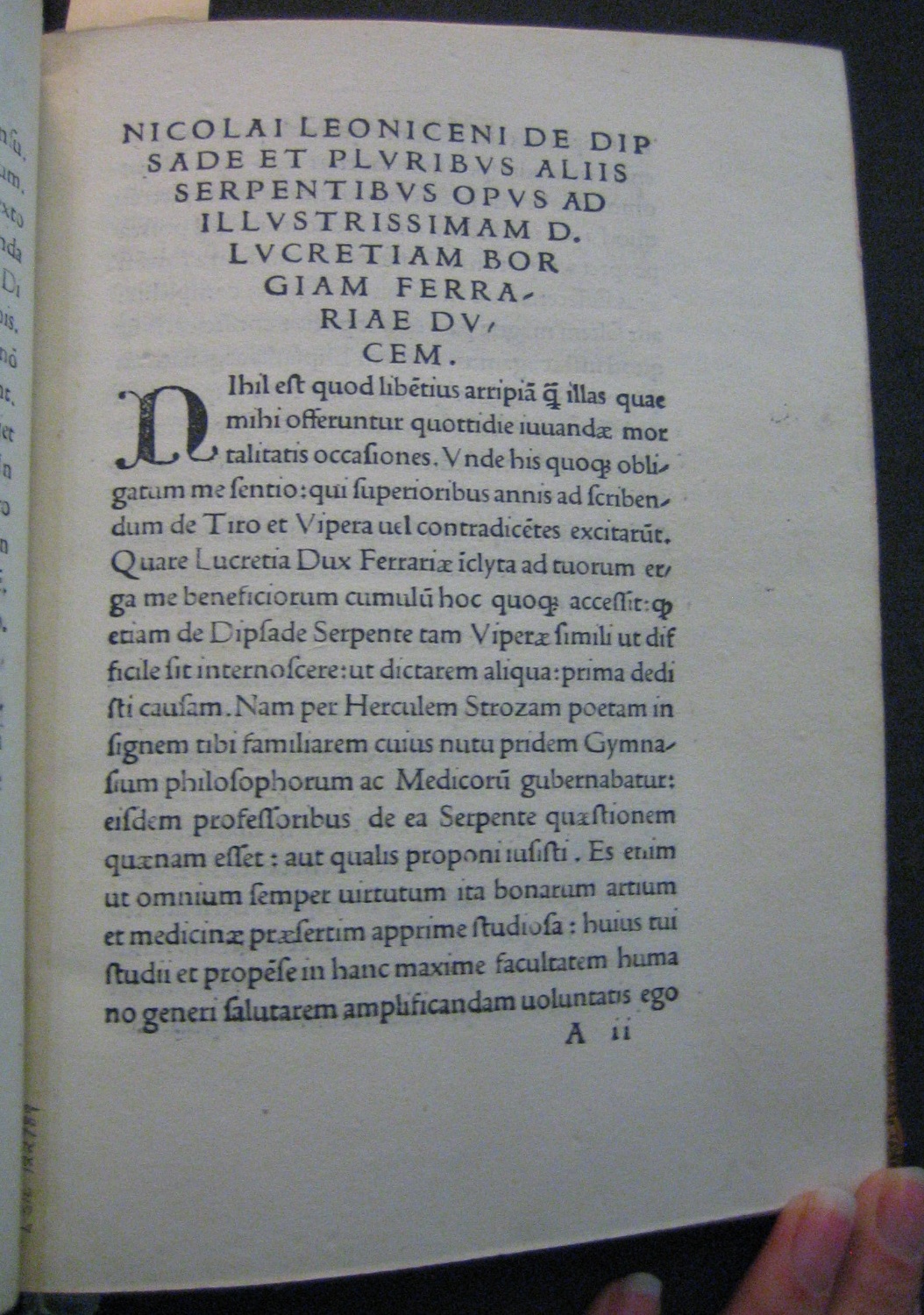
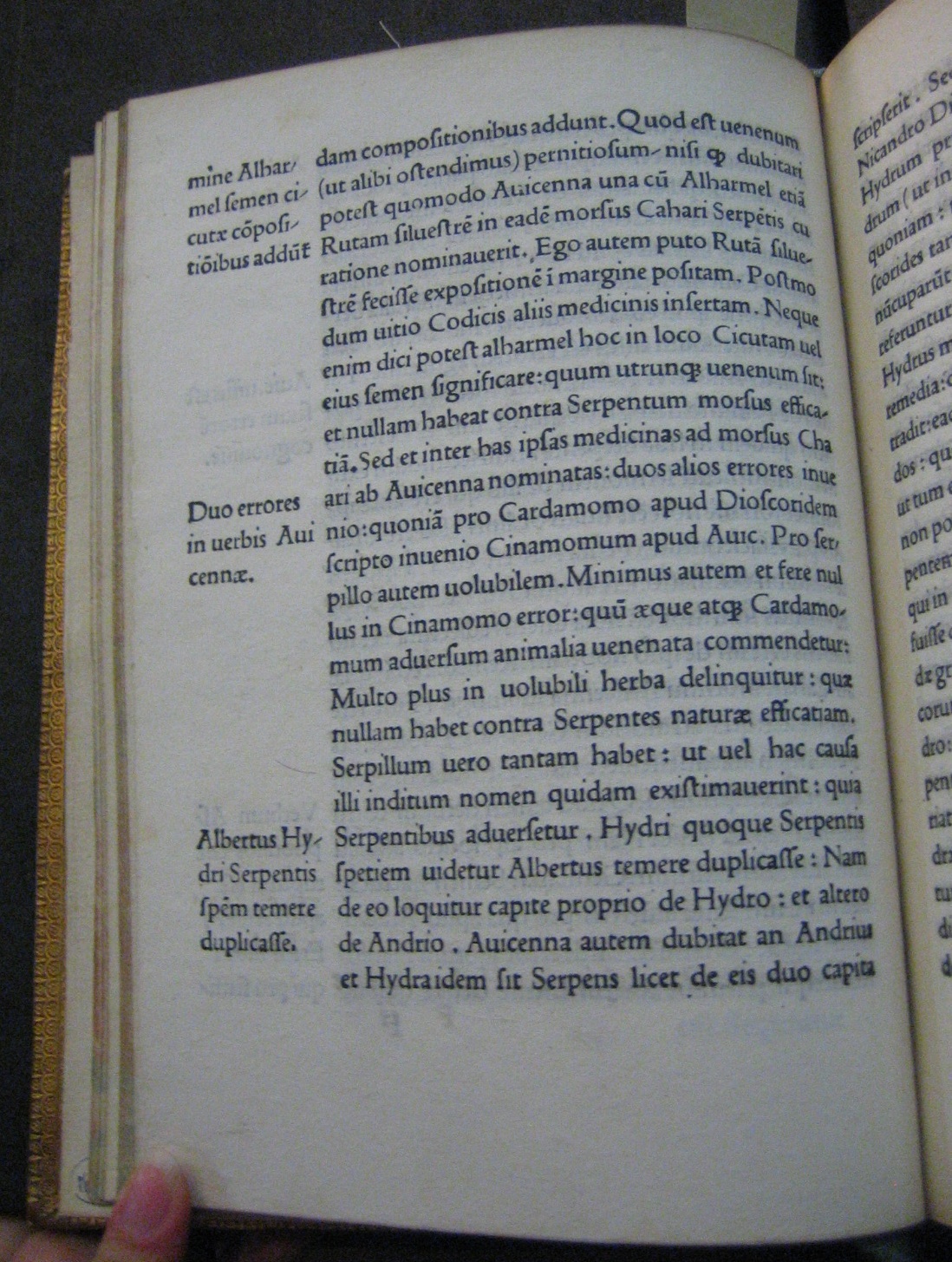
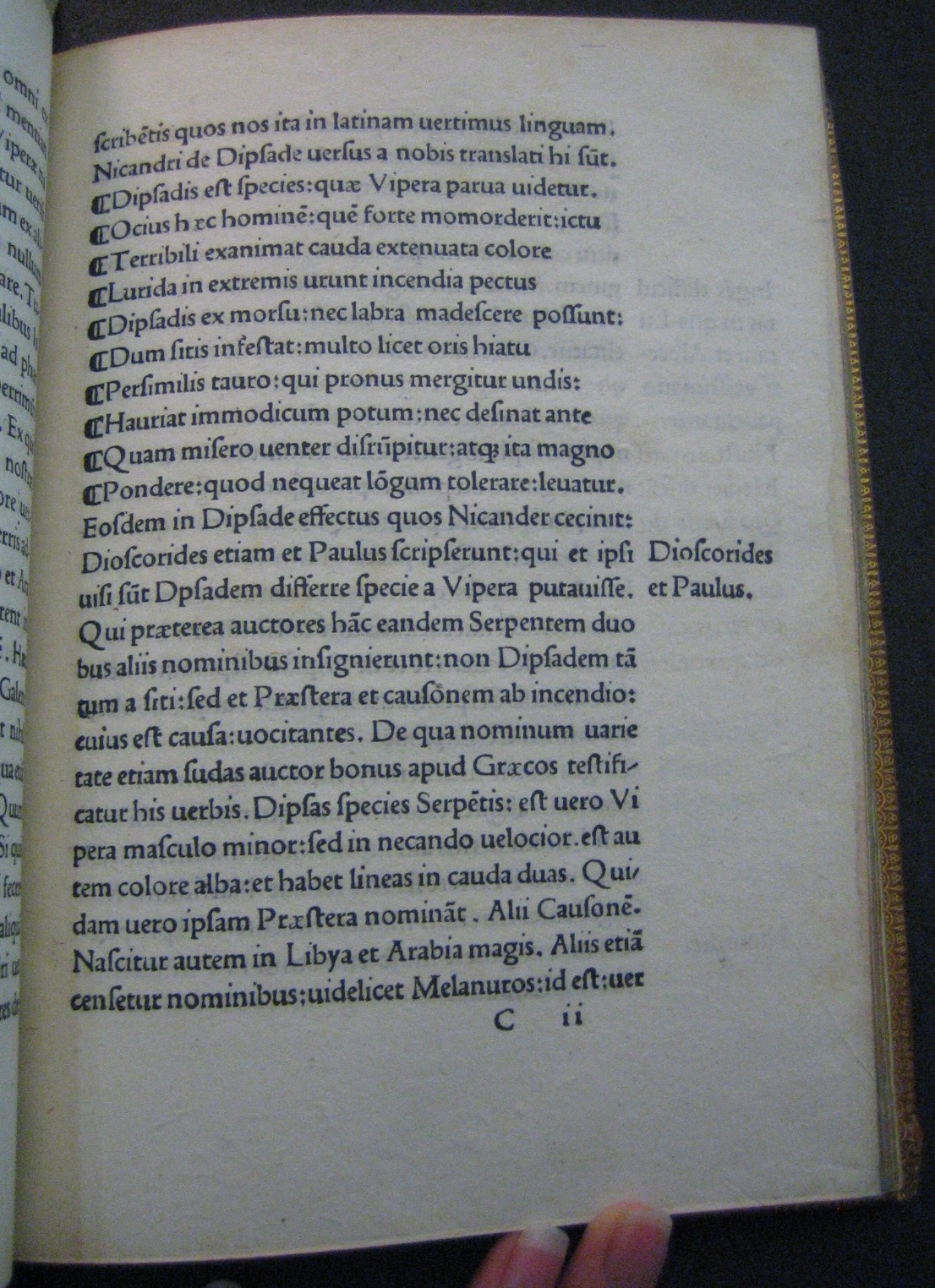
Nicolò Leoniceno (1428-1524) was the son of a physician and grandson of a papal secretary and humanist. He was born into the spheres of learning that would come to define his legacy. He studied philosophy and medicine at the University of Padua, earning his doctorate around 1453, and was invited to teach at the University of Ferrara in 1464, which by that time had become a major center for the study of classical literature. European medical instruction during this period was based ultimately on the writings of Greek physicians but relied upon the works of Arabic authors for this material, which had undergone multiple stages of transmission, translation, and interpretation prior to translation into Latin. Inspired by other humanists of his day, Leoniceno undertook efforts to recover and edit the original works of Greek physicians and provide accurate Latin translations. In doing so he also cited numerous examples of how errors in translation, transcription, and interpretation garbled the meaning of passages. Thereafter Ferrara became the main center for studying the revived Galenic medicine throughout Europe. In addition to translations of Galenic treatises, he published the first academic treatise on syphilis (1497) and sparked a controversy on errors in the works of Pliny the Elder, publishing a brief tract titled
[MB]
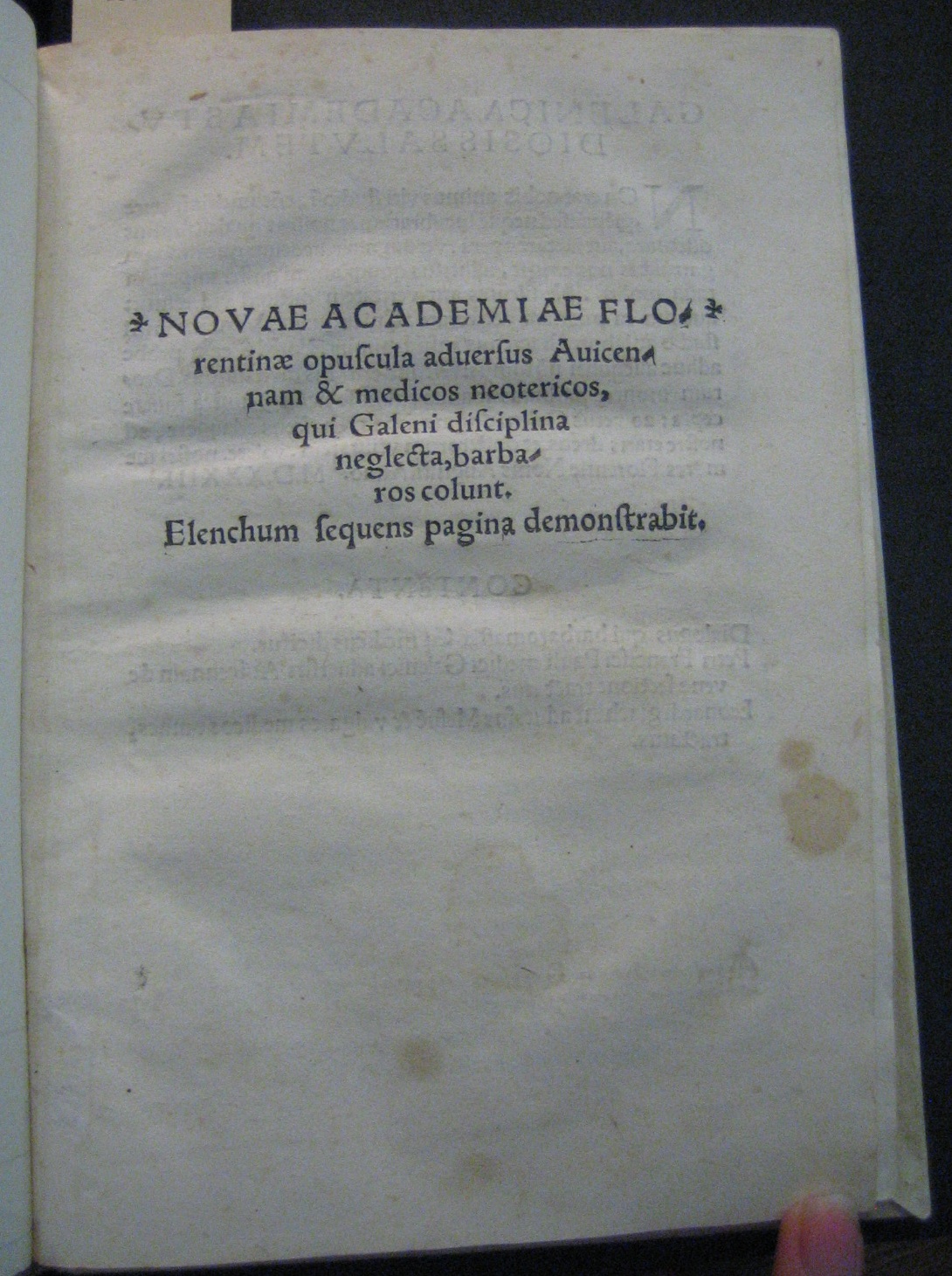
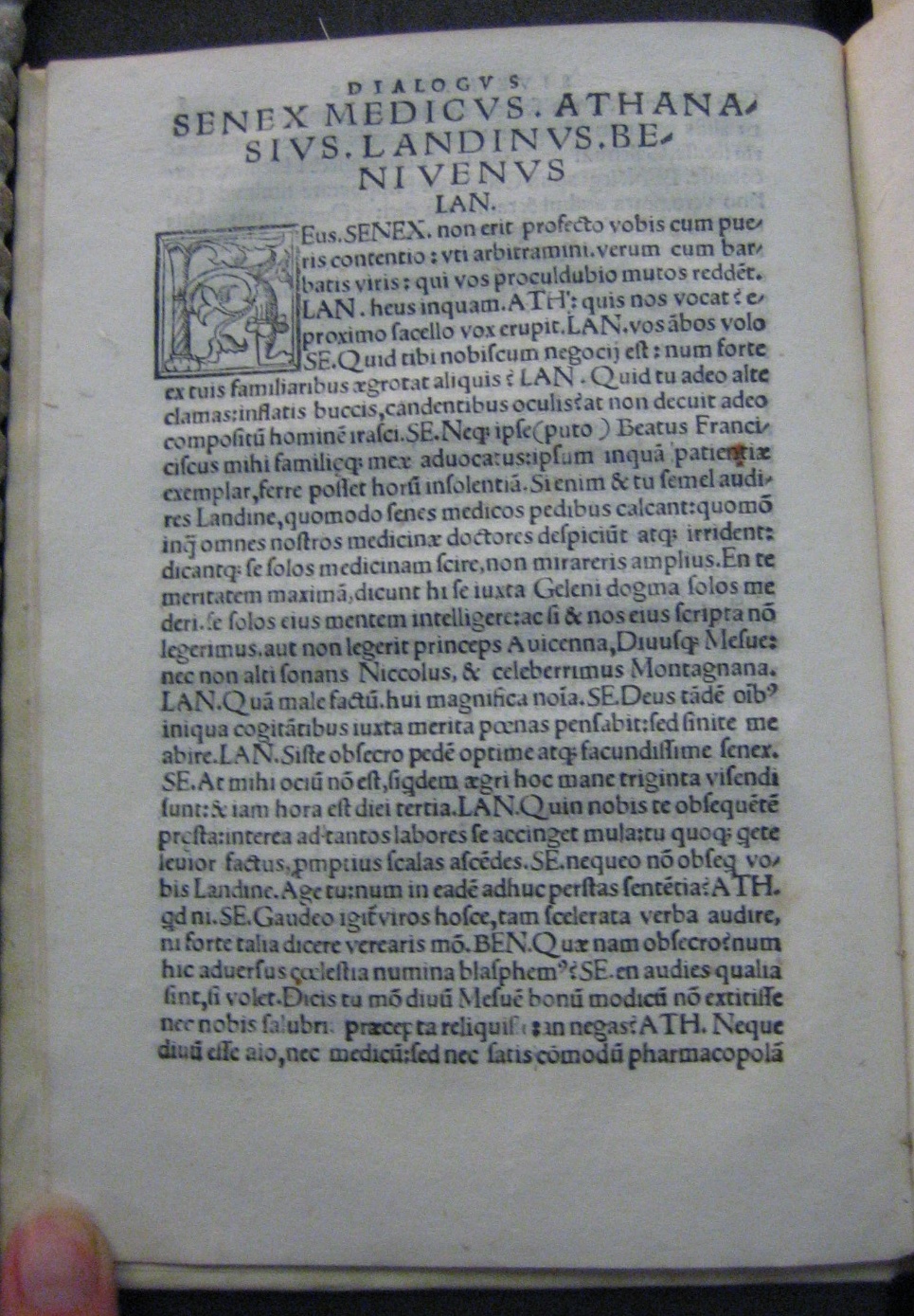
I + 96 + I ff., 203 x 145 mm, A-F4. Venice: Luca Antonius Junta, October 1533.
Latin with handwritten Greek passim. Full-page text. Roman. Ornamented printed initials. Some section headers typeset in larger, italicized roman font.
UCLA Young Research Library, Special Collections, Stacks: Z233.G44N856 1533
[MB]
Contribution date: February 2016